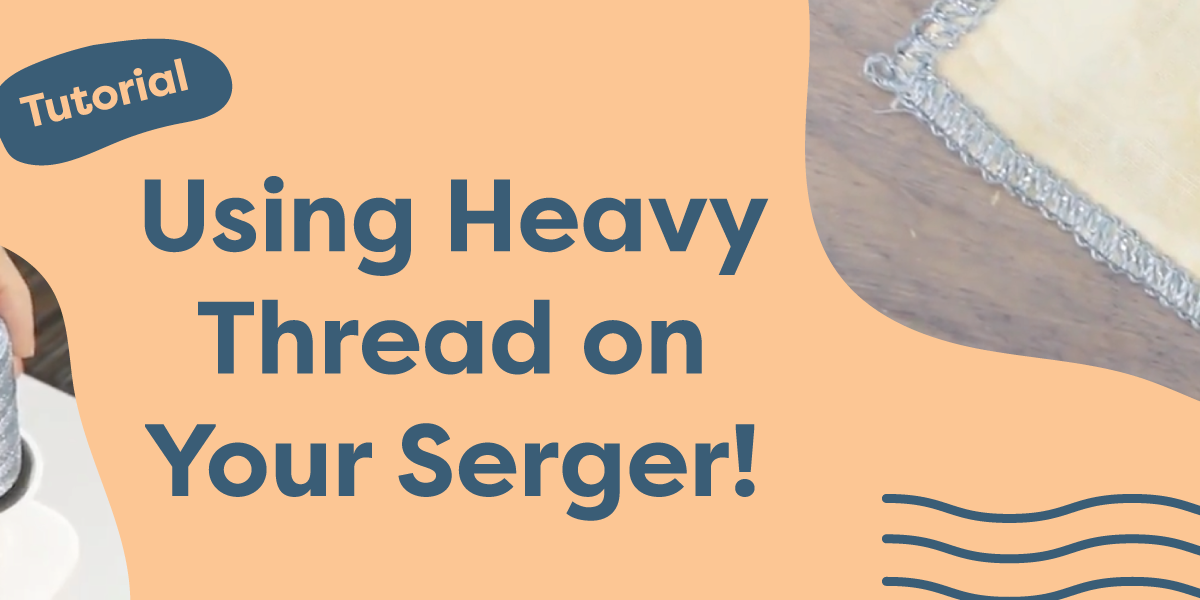If you locate a run-on sentence and find where the two independent clauses "collide," you can decide how best to separate the clauses. Fixing run-on sentences is very similar to fixing comma splices. You can make two complete sentences by inserting a period. You can use a semicolon between the two clauses if they are of equal importance; this allows your reader to consider the points together. You can use a semicolon with a transition word to indicate a specific relation between the two clauses; however, you should use this sparingly. You can use a coordinating conjunction and a comma, and this also will indicate a relationship.
Or, you can add a word to one clause to make it dependent. Once you discover where the two independent clauses are "spliced," there are several ways to separate them. You can use a coordinating conjunction following the comma, and this also will indicate a relationship.
Learn to distinguish conjunctive adverbs from subordinating conjunctions; they do not function in the same way. Conjunctive adverbs should be used to begin independent clauses, not to join them. A compound sentence contains two or more independent clauses linked by a coordinating conjunction. Independent clauses are those that can stand alone as complete sentences. The most common coordinating conjunctions are and, but, and or.
In certain cases, nor, yet, so, and for act as coordinating conjunctions. Truck drivers demanded overtime pay, and the defense conceded that the expression was ambiguous, but said it should be interpreted as exempting distribution activity from overtime pay. The district court agreed with the defense and held that "distribution" was an exempt activity.
For additional information on coordinating conjunctions, click HERE. See the note BELOW regarding the use of a comma between two independent clauses when the second independent clause begins with a parenthetical element or adverbial clause. An independent clause is a unit of grammatical organization that includes both a subject and verb and can stand on its own as a sentence. In the previous example, "I went running" and "I saw a duck" are both independent clauses, and "and" is the coordinating conjunction that connects them. Like an independent clause, it has a subject and a verb. It may not, however, express a complete thought and may begin with a signal word called a subordinating conjunction.
The chart below outlines common coordinating and subordinating conjunctions discussed in this section. Another possibility is that a writer is punctuating by ear, relying on the old idea that you put a comma where you take a breath. Since but signals a disjunction, a writer might imagine a pause and insert a comma on that basis.
But punctuation is not determined solely by pauses heard in our mental ear. If pausing is the basis for the comma after but, we are dealing with a false underlying assumption leading to an error. A comma indicates a pause between the ending of an introductory word, phrase, or clause, and the beginning of the main part of the sentence. The most common introductory word groups are clauses or phrases which function as adverbs, telling how, why, when, where, or under what conditions something happened. Other introductory elements may include prepositional phrases, adjective clauses or phrases, participial phrases, infinitive phrases, and transitional expressions.
Academic writing expresses complex ideas and, as a result, often requires sentences that are equally complex. For this reason, it's not uncommon to see comma splices—joining two independent clauses with a comma—in your work as the demand for complexity increases. Below you'll find ways to recognize and correct these kinds of errors. "Comma splice" is a term used for the linking of two independent clauses — that is, grammatical units that contain a subject and a verb and could stand alone as sentences — with a comma. When I started teaching at the University of Delaware some years ago, I was positively gobsmacked by the multitude of comma splices that confronted me. Coordinating conjunctions are conjunctions, or joining words, that are placed between words and phrases of equal importance.
Used with coordinating conjunctions, commas allow writers to express how their complete thoughts relate to one another. They also help avoid the choppy, flat style that arises when every thought stands as a separate sentence. Contending that the coordinating conjunction is adequate separation, some writers will leave out the comma in a sentence with short, balanced independent clauses . If there is ever any doubt, however, use the comma, as it is always correct in this situation. In most cases, joining two independent clauses (i.e., clauses that can stand alone as complete sentences) by a comma creates a comma splice. As you may recall from above, an independent clause has a subject and a verb and can stand on its own as a sentence.
Often, a coordinating conjunction will connect two independent clauses — like the word "but." Though not necessarily mechanical, the use of commas in lists is well established. In this usage, the comma separates a series of words, phrases, or independent clauses. A comma is used to separate independent clauses in a compound sentence. An independent clause is a group of words with a subject and a predicate.
It expresses a complete thought and can stand alone as a sentence. A compound sentence is a sentence with at least two independent clauses. Many inexperienced writers run two independent clauses together by using a comma instead of a period.
This results in the dreaded run-on sentence or, more technically, a comma splice. Use a semicolon to replace a comma when you use a coordinating conjunction to link independent clauses that already contain commas. Many writers forget to put a comma before the word as when one is needed (or they use a comma when they shouldn't). Writers tend to make this mistake when forming sentences in which as separates two independent clauses. There are hundreds of grammar rules but the basics refer to sentence structure and parts of speech, including nouns, pronouns, verbs, adjectives, adverbs, prepositions and conjunctions. Yes, we do bend the rules of grammar a bit, for different types of writing.
For instance, a formal essay would never begin a sentence with the word "And". But the rules are still there, and they say that a clause which begins with Because is going to ask a question. So the Because clause will be subordinate to the independent clause to which it is joined. Automatically, the Because clause will need to lean on the independent clause.
In the preceding examples, note the comma after sister and late. Nonessential words, clauses, and phrases that occur midsentence must be enclosed by commas. Following are two instances of the need for an appositive comma with one or more nouns.
Do Complex Sentences Always Have Commas The comma functions as a tool to indicate to readers a certain separation of words, phrases, or ideas in order to prevent misreading the writer's intended meaning. When a sentence is spoken aloud, a comma often represents a pause, which in verbal conversation functions to clarify meaning. The comma is used according to specific rules that relate to grammatical structures within the sentence. Consistency in the use of commas allows the reader to be assured of proper interpretation of the writer's intentions. If the word is restrictive, commas should not be used; if the word is nonrestrictive, commas are required.
When these words join two independent clauses they are known as adverbial conjuncts because they are adverbs acting as conjunctions. A compound sentence must have two independent clauses – not just two verbs, two nouns, or two groups of words that are not independent clauses. I think we have to keep in mind that English is not a standardized language. There are plenty of rules that differ regionally, while others are simply defined by personal taste.
Personally, however, I find it ridiculous to castrate "but" or "because", when they are used to separate an independent clause. As Bob stated earlier, you would never omit the comma with conjunctions such as "for" or "as". But–there are even people who say there should never ever be a comma before a "because".
In English grammar, a clause is a part of a sentence that has its own subject and verb and that provides either essential or nonessential information. Thus, we have what are called "essential" and "nonessential" clauses. Each is used differently, so knowing which is which is important in writing.
For readers who are unfamiliar with the grammatical terms essential and nonessential or unaware of which type of clause requires punctuation, this is an essential article to peruse. The grammatical term for a joining word is conjunction. Conjunctions refer to those words in the English language such as and or but or since or because that allow us to build more complex sentences out of simpler ones. The conjunctions and and but are called coordinating conjunctions; the conjunctions since and because are called subordinating conjunctions.
Use a comma to separate the two independent clauses in a compound sentence. A comma is a punctuation mark that is frequently used in sentences. Commas separate ideas, add pauses, and help you to list things clearly. They also let us connect words, phrases, and clauses together to make longer sentences. In fact, the comma is one of the most important and commonly used types of punctuation.
Use a semicolon to join two related independent clauses in place of a comma and a coordinating conjunction . Make sure when you use the semicolon that the connection between the two independent clauses is clear without the coordinating conjunction. Use a semicolon to join two related independent clauses in place of a comma and a coordinating conjunction.
Moreover, it's clear that when people want to use punctuation artistically, most of the time they strip it out . The writing flows through good choice of words, leaving out what other writers would choose to -embellish, and getting to the heart of their characters. As a reader, I don't read commas as pauses, so using them isn't going to work in the way you want them to work.
Both clauses are independent and could stand on their own as complete sentences. When they are joined in the same sentence, however, they must be connected with a comma and a coordinating conjunction. A complex sentence contains an independent clause and one or more dependent clauses. A dependent clause, unlike an independent clause, cannot stand on its own as a complete sentence. The conjunctions and prepositions most commonly used to introduce a dependent clause include if, because, while, as, although, since, and unless. You should always have a comma before FANBOYS that join two independent clauses .
Look carefully at the next two sentences to see two independent clauses separated by comma + FANBOYS. A writer's awareness of essential and nonessential clauses, and when to correctly include or exclude a comma or other punctuation pause when using them, might go unnoticed by readers . However, having that writerly awareness can make a reader's experience that much more pleasant . It is an essential quality for a good writer to have. The grammatical term for a group of words that can stand on its own as a complete sentence is independent clause.
To be an independent clause, the group of words must contain both a subject and a verb. In the independent clause I completed my essay, I is the subject, and completed is the verb. A comma comes before a coordinating conjunction when both are independent clauses. When a coordinating conjunction joins two independent clauses, a comma is used before the coordinating conjunction .
If the independent clauses are not joined by a conjunction, i.e., and, or, nor, but, etc., then the correct mark is the semicolon (;), see more under . A comma marks a slight break between different parts of a sentence. Used properly, commas make the meaning of sentences clear by grouping and separating words, phrases, and clauses.
Many people are uncertain about the use of commas, though, and often sprinkle them throughout their writing without knowing the basic rules. When you're writing a list of nouns, verbs, or any other part of speech, you'll need to include commas to separate them. When joining two independent clauses, or clauses that could stand on their own as full sentences, place a comma before the conjunction. If the second independent clause is very short, or if it is an imperative, the comma can be omitted. Commas are necessary before a coordinating conjunction that separates two independent clauses. A simple sentence contains only one independent clause and no dependent clauses.
When a simple sentence contains a conjunction, you might be tempted to insert a comma before the conjunction, as you do with a compound sentence. With a simple sentence, however, the general rule is to omit the comma. A comma splice is a sentence that has two or more independent clauses joined only by a comma. To join two closely related independent clauses that are not joined by a coordinating conjunction. Punctuation, or lack thereof, can help identify an essential or nonessential clause.
An essential clause is not set off by commas or other internal punctuation marks, such as dashes or parentheses, with the understanding that it is a necessary part of the sentence. Conversely, a nonessential clause is set off by punctuation that visually marks it as separate from the main part of the sentence. To test if a clause is indeed nonessential, leave it out and reread the sentence. If the main point of the sentence is not lost or distorted, then, yes, it is nonessential and needs punctuation.
Otherwise, it is essential and no punctuation is required. However, if you choose to write this as two separate independent clauses, connected by a conjunction like and or but, you would also use a comma to divide them. In sentences where two independent clauses are joined by connectors such as and, or, but, etc., put a comma at the end of the first clause.






















